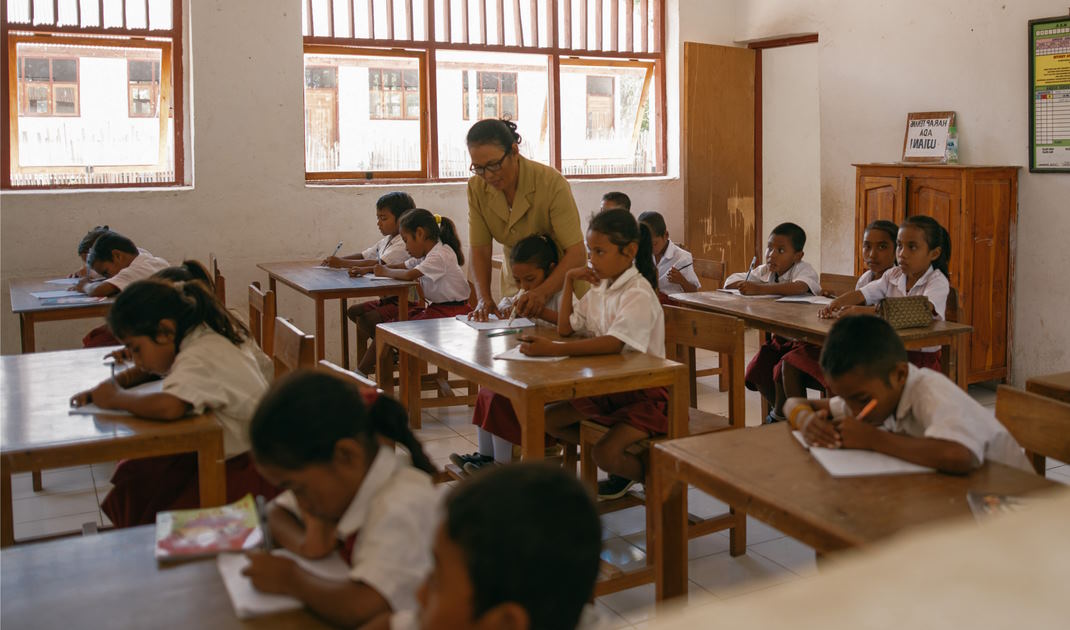Education is a powerful tool, yet it’s often taken for granted. It can open so many doors and even provide an opportunity to lift oneself out of poverty. The power of education encourages those from humble beginnings to strive for more, giving them the skills, knowledge, and confidence needed to take control of their lives and ultimately shape their own future. But sadly, not everyone has access to quality educational opportunities that can help unlock this potential — something we must work together diligently to rectify. In today’s blog post we will discuss why education is life-saving in the fight against poverty–and what actions must be taken so that all have equal access no matter their socio-economic background.
The lasting effects of poverty on children’s education
Low-income children are more likely to have lower grades and test scores, higher dropout rates, and fewer opportunities for postsecondary education than their higher income peers. This can lead to a long-term cycle of poverty that is difficult to break out of. In addition, poverty affects the health of low-income children in many ways. For example, poor nutrition and living conditions can lead to physical illnesses such as asthma or respiratory infections, further impeding educational progress. Additionally, mental health issues like depression or anxiety can also arise due to the stress of poverty.

These effects can linger well into adulthood if proper action isn’t taken early on in a child’s life. Investing in early childhood education can help break the cycle of poverty and give children better opportunities to succeed in life. By providing quality pre-K programs, health care access, and other resources, communities can ensure that low-income children have a better chance to reach their potential. Additionally, creating policies that address income inequality can help reduce poverty’s effects on educational outcomes. With proper investment, we can make sure that all children have an equal opportunity for success.
The benefits of education in combating poverty
Even in countries where the economic situation is dire, education can help reduce poverty rates and improve many people’s quality of life. Education gives people more knowledge and skills that can help them to access better jobs, earn higher incomes, manage their finances more effectively, start businesses, gain autonomy from oppressive systems of power and strengthen communities. With improved levels of literacy come improved opportunities for communities to obtain vital health services, access resources and support for basic needs like food and housing. Education also helps to build strong individual identities by encouraging critical thinking as well as instilling a sense of purpose in individuals so they never feel completely powerless or without hope. Furthermore, education provides an avenue for those who live in poverty-stricken areas to gain access to global markets and new economic opportunities, which can help bring entire communities out of poverty. Education is also a powerful tool for ending violence, promoting gender equality and creating more peaceful societies. Through education, disenfranchised children gain the ability to demand their rights and create positive change in their own lives and within their communities.

In sum, education is essential for combating poverty around the world. With improved access to healthy educational opportunities, people from all walks of life are empowered to create brighter futures for themselves and their families. Education is key in breaking the cycle of poverty, nourishing minds and fueling hope for a better tomorrow.
Education helps build a more equitable society by ensuring individuals have access to resources that will help them overcome poverty. By improving access to quality education, people can gain knowledge, build skills and develop the confidence necessary for succeeding in a world that otherwise may have seemed out of reach. Education provides an avenue for those living in poverty-stricken areas to gain access to global markets and serves as a platform for creating strong communities and advocating for social justice. Access to quality education can enable individuals to become self-reliant, find secure employment and share their newfound success with others in their community. With increased educational attainment comes improved well-being overall, as individuals are more likely to contribute positively to their society. Poverty reduction is most effective when educational opportunities are combined with strategies that promote economic prosperity, health equity, and social justice, creating a healthier and more prosperous future for all.
Education is one of the most effective strategies for combating poverty around the world by equipping individuals with the knowledge, skills, and confidence necessary to build better lives for themselves. As more people access quality educational opportunities, we can create a brighter future where everyone has the opportunity to live healthy and fulfilling lives. Education is key in providing individuals with a chance at self-sufficiency, which will help break the cycle of poverty and promote long-term economic growth within impoverished communities. With improved access to quality education, individuals can gain control over their own destinies and empower their local communities to move toward greater health equity and prosperity.

